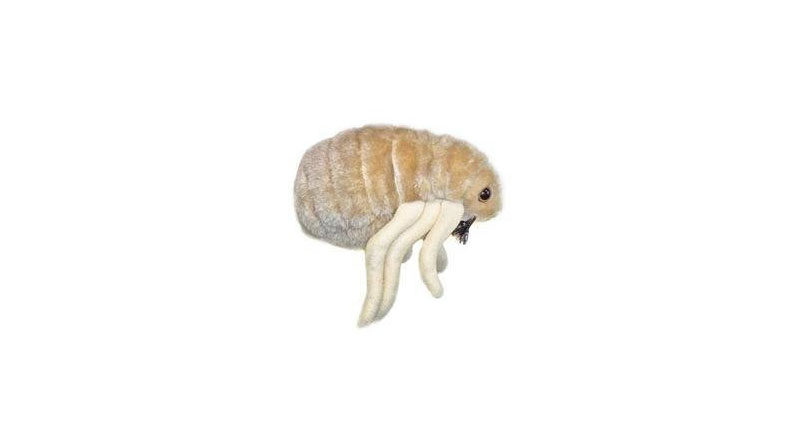Tiny problem – huge help
How good it is to deal with animals in need…
We hear it many times.But there are also hidden secrets of this hobby.Now we tell the hottest problems.
Fleas might seem to be a tiny problem but they are not.
There are shelters which can treat this problem perfectly throughout the year. They always pay attention and act immediately. There is no chance to make mistake. Fleas are everywhere: they can be found in stray dogs found on the streets, in those who have proper owners and also in those dogs that are facing euthanasia. This is a fact. Besides fleas, there are other parasites as well; insects, ticks, etc, the list is endless.Animals entering the shelter must immediately be cleared from parasites. Even if it happens at night and even if there would be more important things to do. Of course it also matters where we do it… Those who have already shipped stray dogs, become quickly experienced. We can see that the dog is full of fleas; flea droppings tell a lot; dogs look like as if they were covered with poppy seeds all over.
We apply so-called spot-on medicines, which are the most efficient anti-flea drops. We put the dog back in the car and wait. Then the fleas slowly come off the dog… in the car.
Next time we are smarter and wait a little before we let the dog back into the car. Or we ask the person who found the dog to apply spot-on before we get there.
In shelters it is also very important to avoid the adoption of fleas along with the adoption of dogs. In case it is too late, workers of the shelter should pay attention to all spots the infected dog has already been in order to disinfect it.
„Visible adult fleas make up only 5% of the whole flea population. The remaining 95% are eggs, larvae and nymph forms. These forms are found in the living environment of animals and/or wherever the animals have formerly been. Therefore we can say that behind each noticed flea, there is a high number of developmental stages. Young adult fleas are very sensitive; they need to find a host, a dog or a cat immediately. After jumping on to the hair of the host animal, fleas immediately begin to suck blood. Within 24-48 hours of the first successful sucking, they already mate. Young female fleas lay eggs continuously; they usually lay 50 eggs a day, for 100 days. Within favorable circumstances the entire development cycle is completed within 21-28 days and due to the large amount of hatched eggs, the number of fleas’ increases dramatically.”
If only one flea control falls off, this problem can become huge.
Let’s imagine that we take care of 100 animals. Let’s also imagine that fleas proliferate the shelter, there are dozens of fleas nests all around and no money to simultaneously disinfect the entire site.
It is a part of our work to pack our car and visit rural shelters. We take things there and we also take some from there, for example fleas… because fleas do not keep away from humans either. Workers of the shelter struggle with fleas as well. They carry them home every single day just like we do when visiting rural shelters.
This time we helped such rural shelters, where this tiny problem became enormous. We gave a helping hand to prevent flea eczema that leaves ugly scars behind. We helped by giving these shelters some time to breathe, to catch up with duties instead of fighting against fleas in vain. The maintenance of this condition is a lot easier than trying to get rid of such a huge problem alone.
We were given a larger amount of Neostomosan disinfectant by one of our supporters. Neostomosan is suitable to eliminate flea nests and it also disinfects the environment.
We made contact with numerous manufacturers and distributors. One of them gave us 100 pieces about to expire spot-on medicines for only 400 HUF.
Another wholesaler helped us with a price reduction of a high quality product; we could buy them for 700 HUF instead of 1500 HUF.
We managed to collect a total of 86 218 HUF.
We had numerous events and fundraisings that could also add 72.725 HUF to this „flea action”.
We managed to reach the following shelters:
- Karcag – Kunkarcagi Állatvédő és Állatbarát Egyesület
- Püspökladány – Az Elhagyott Állatokért Első Sárréti Regionális Állatvédő Egyesület
- They do not know it yet, but we will make a surprise visit at the Kóborlók Állatvédelmi Egyesület of Nyírmada
We would like to say thank you:
Mihály, L. Zoltán, Sz. Dóra, B. Zsófia, H. Csilla, H. Borbála, T-né P. Andrea, T. Enikő B., Ch. Judit, T.L.R-né, T. Ildikó, M. Eszter, K. Ferenc, G. E. Éva, S. Zsófia, Sz. N. Zsuzsanna, V-K Éva, Dr. F. Krisztina, B. J. József, T. Petra, V-Z Anita, P. Sándor és neje, Z. I. Anna, K. Csilla, K. Jenő és K-né G. Tímea, O. Ildikó, T. Alexandra, M. Viktória, M. Judit, Cs-né Garas Csilla, N. A. Zsuzsanna, E. Péter, F. Veronika, T. Renáta, K. Georgina, B. Emília, K. Tibor és neje, o. Péter, Sz. Árpád, N. Andrásné
A special thank to Orbán Péter who created our beautiful poster.
In our program, shelters carry out the disinfection of dogs and the site itself at the same time, as it is the most effective way.
Autumn is the ideal time for flea control; due to cooler weather it is easier to stop their proliferation.
If anyone wishes to support this initiative, we are more than happy to receive donations throughout the whole year.
A little help against suffering:
Hangya Közösség
Bank: MagNet Bank
Bankszámlaszám: 16200223-10044991-00000000
IBAN: HU06 1620 0223 1004 4991 0000 0000
SWIFT: HBWEHUHB
Paypal: Hangya Közösség Alapítvány
